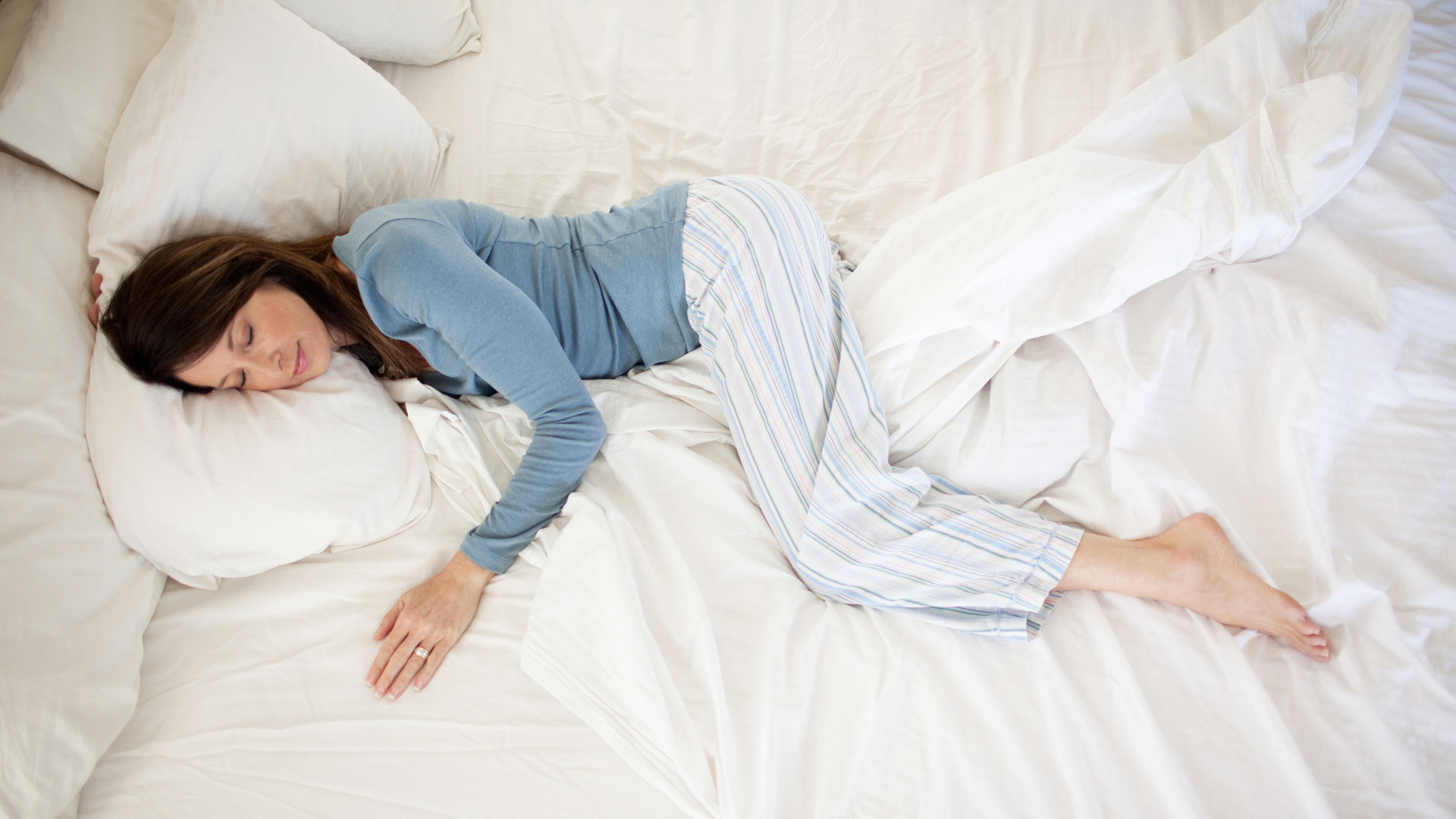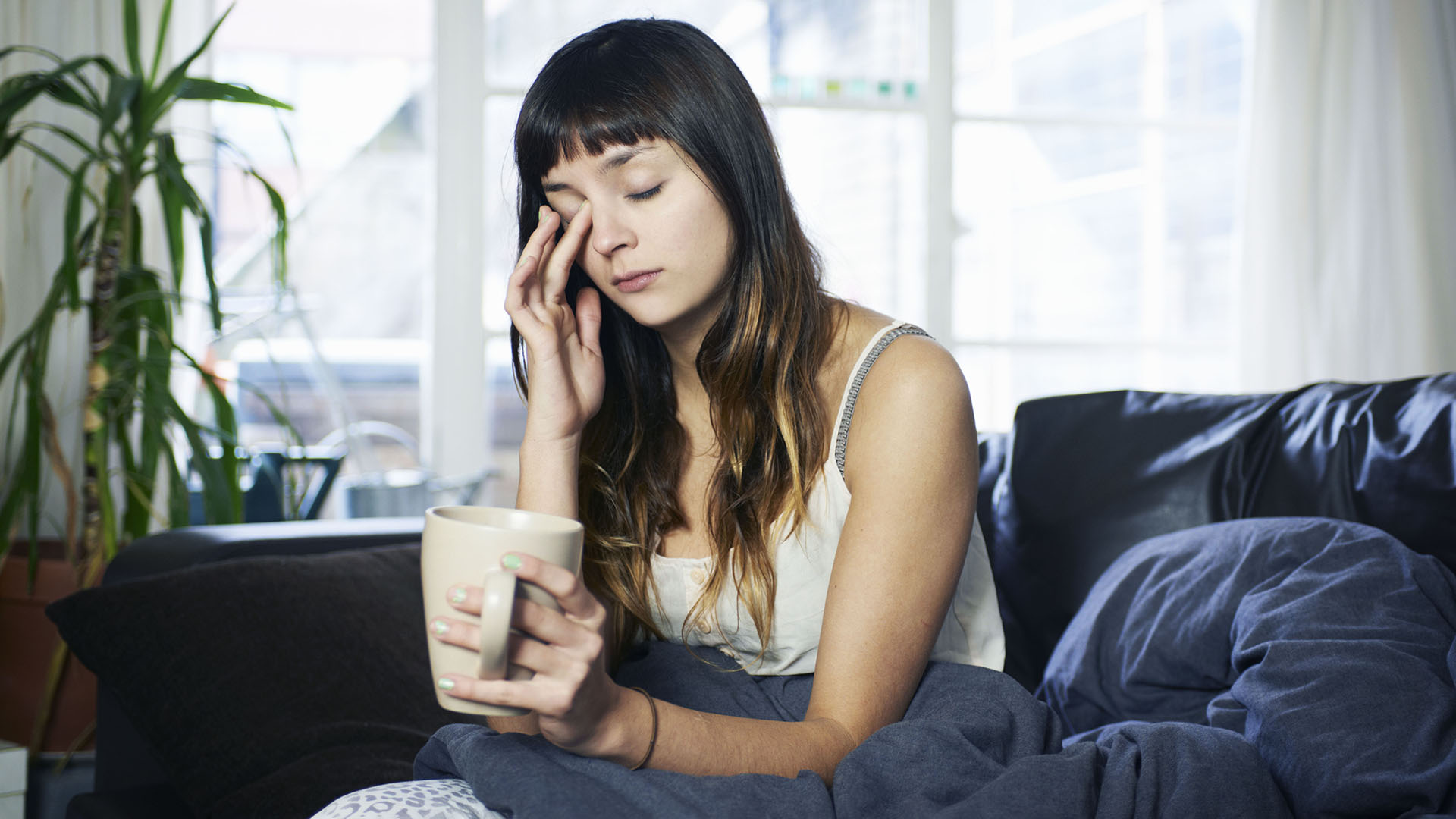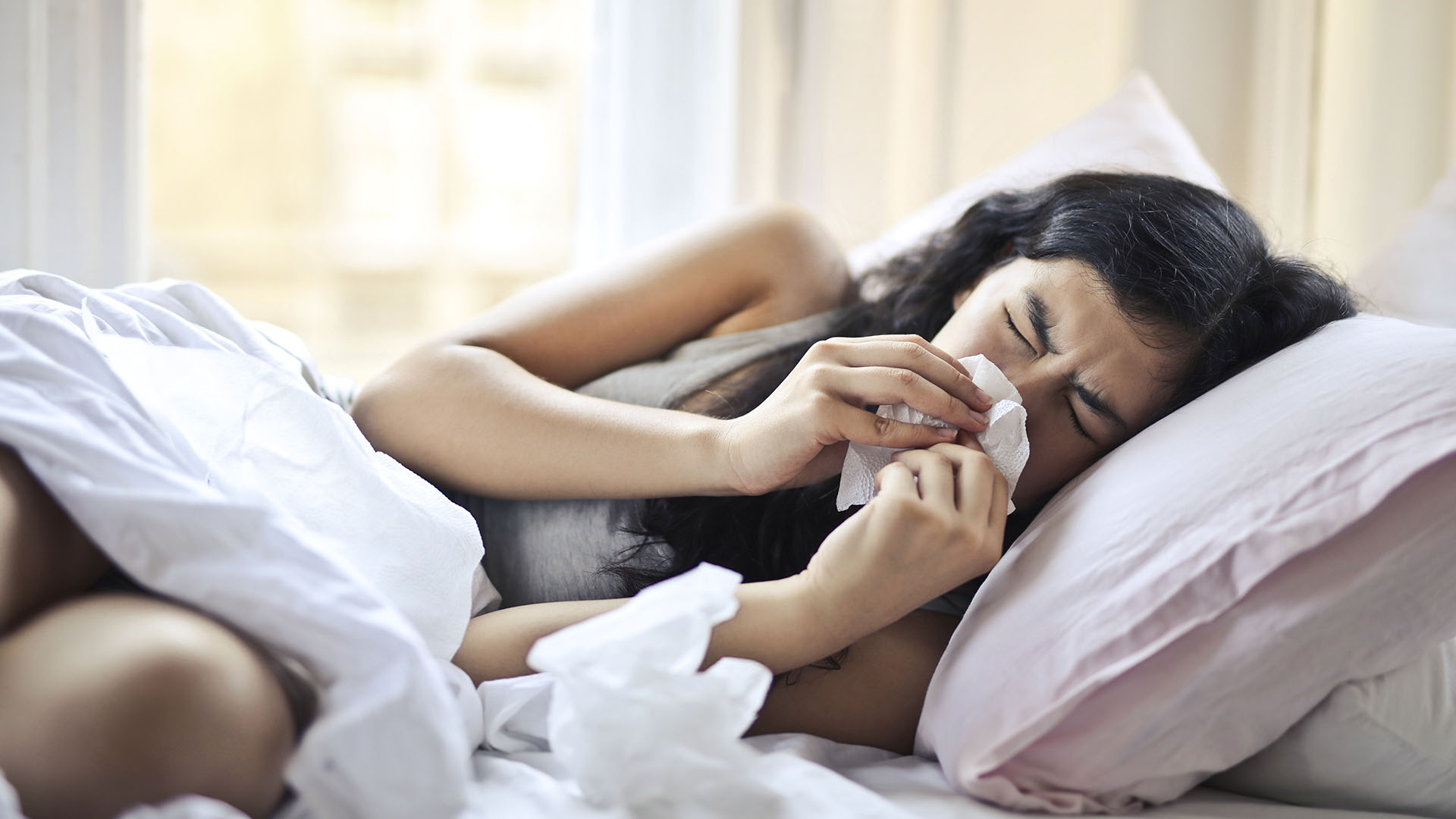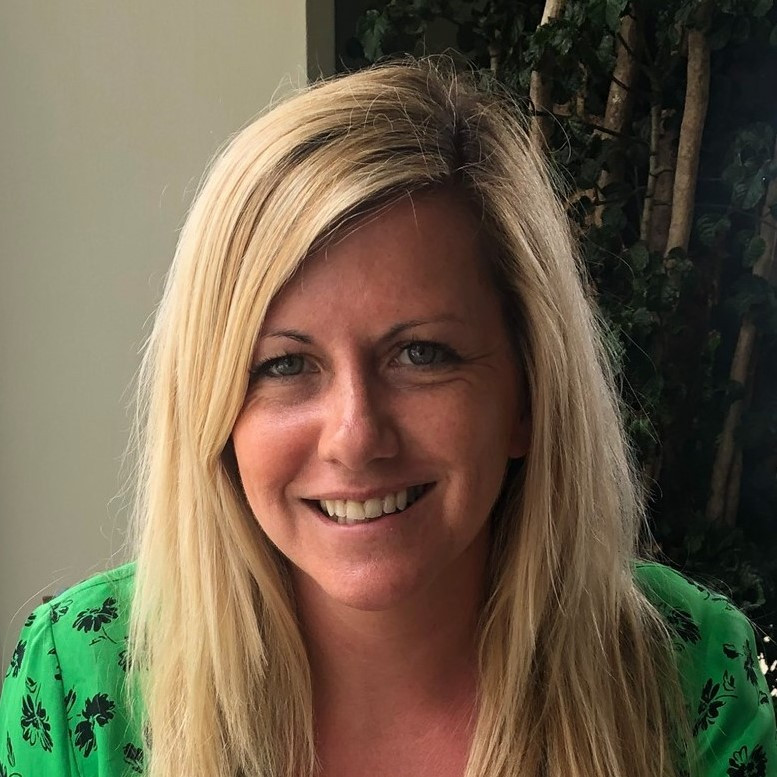How does sleep affect your immune system?
Can getting less sleep weaken your immune system? We asked some experts.

Most of us have burned the candle at both ends at some point in our lives, but not getting enough sleep, on a regular basis, can affect our immune system.
When we fall into a slumber, especially in deep sleep, our body uses that time to repair itself, cycling through various stages of sleep to repair our cells and inflammation - protecting us from viruses. So, what happens when you don’t get enough sleep, how will your body react and will you be more likely to come down with colds and viruses on a regular basis?
We look at the latest research and talk to Dr. Suzanne Bartlett Hackenmiller, Chief Medical Officer at AllTrails and Dr Enam Abood, head doctor at the Harley Street Health Centre about how much your sleep is affecting your immune system, including how we can change simple things, including investing in one of the best mattress and best pillows, to sleep better and increase the effectiveness of our immune system.
How does sleep affect the immune system?
We already know that experts recommend that we get between 7 - 9 hours of sleep a night, but if you’re lacking in sleep it won’t just affect how you perform the next day, but also how the body repairs itself. In fact, research shows that the effectiveness of your immune system is affected by the quality and consistency of your sleep.
“Mental stress, diets high in processed food and low in things like vitamins and healthy fats, lack of exercise, inadequate sleep, exposure to chemicals, and disconnection from the healing effects of time in nature-burden our systems and lead to inflammation,” explains Bartlett Hackenmiller.
While Abood says that sleep deprivation doesn’t just cause symptoms like low mood, but can also “raise blood pressure and change the physiological processes of insulin and body metabolism resulting in weight gain and related health issues.”
More specifically she adds that: “Sleep helps boost the immune system by producing cytokines, which are proteins that help fight infection and inflammation.” The less you sleep, the fewer cytokines you produce, along with fewer infection-fighting antibodies - making you more prone to illness and viruses.
Get daily insight, inspiration and deals in your inbox
Sign up for breaking news, reviews, opinion, top tech deals, and more.
Can lack of sleep make you sick?

If we’re constantly getting less than six hours of sleep a night, or quality sleep, our body doesn’t have a chance to rest and repair - so yes you can get sick more often. When we drift off we go through cycles of sleep, including deep and REM - key stages where our body needs to repair itself - from cell regeneration to immunity building.
Abood explains how our body heals itself when we sleep: “During sleep, the body produces growth hormones, which help repair and build muscle tissue. Sleep is also essential for the regeneration of cells, including skin cells, and it plays a crucial role in consolidating memories and information learned during the day.”
Research in 2021 also concluded that lack of sleep ‘may result in deregulated immune responses with increased pro-inflammatory signaling’.
“Studies show that people who don’t get quality sleep or enough sleep are more likely to get sick after being exposed to infections such as common cold, flu, and COVID, while lack of sleep lowers the rate of healing from an illness,” Abood adds.
While Hackenmiller explains that chronic inflammation creates the perfect environment for cells to divide erratically. “When this process goes unchecked, cancerous tumors can develop. Natural Killer (NK) cells are one mechanism the body uses to fight cancer. These immune cells sweep through the body, attacking and devouring aggressors like bacteria, viruses and tumor cells.”
Sleep and vaccines
Just as you’re more likely to catch a cold when you’ve missed out on crucial sleep, it can also have an effect on any vaccines you have. “Research has shown that people who received 7.5 to 8.5 hours of sleep for the six days prior to getting a flu shot generated a stronger antibody response to the vaccine than those who were restricted to four hours a night prior to immunization,” explains Bartlett Hackenmiller.
While she goes on to add that: “the sleep-deprived group generated only 50 per cent of the antibodies the well-rested group produced. So not only is it important to get vaccinated against illness, giving your body the tools, including sleep and nutrition, to build antibodies is crucial.”
Sleep and allergies

While allergies, including hay fever, could affect how you sleep - with a stuffy nose and breathing problems - lack of sleep can also cause allergies to worsen.
A 2022 research paper showed that lack of sleep quality meant you had higher odds of suffering from hay fever; another study showed that those with sleep disorders and sleep problems suffer from more allergies.
How to improve your sleep and your immune system
Multiple factors can affect how well we sleep, from our diet, to our light exposure, to our stress levels. Even external factors like a full moon might cause bad sleep! Below are some steps to follow to ensure that, no matter the circumstances, you get the best sleep possible.
Good sleep hygiene
Abood explains you should follow some basic sleep hygiene tips including not looking at screens for at least 30 minutes, and ideally an hour, before sleep, while she adds: “Engaging in relaxing activities such as taking a bath, aromatherapy such as lavender oil, self-hypnosis and mindfulness.”
Making your bedroom into a sleep haven, with no distractions such as light, sound and an uncomfortable mattress or pillow will also ensure you get the quality sleep you need.
Get out in nature
With various screens to keep us busy, for work and pleasure, it's tough to break away from them and get outside, but nature is a simple remedy to help our minds and bodies. Bartlett Hackenmiller suggests that we should all take a daily twenty- to thirty-minute walk outdoors, in nature. “Notice if sleep and mood improve and if this translates to better nutrition, more activity, and overall greater health.
“A systematic review from 2020 found people who had greater exposure to ‘green space,’ areas with nature and vegetation, reported improved quality and quantity of sleep as compared to people who spent more time in urban or built settings. The study also suggests exercising in nature may be an effective intervention to improve sleep,” the medical officer explains.
Move more
Yes, we’re recommending more exercise - but it really has proven to not only aid sleep but also boost the immune. This study, where they looked at the effect of exercise on twenty-one women who suffered from insomnia and didn’t do any form of sport showed that exercise, over a four-month period, improved their immune function and sleep quality. Just 30 minutes of brisk exercise a day can boost your mental and physical health too.
Avoid alcohol and caffeine
Both stimulants will leave you wide awake, and while coffee takes 6 hours to go through your body, even just a couple of alcoholic drinks will have an effect on the quality of your sleep. Have a cut-off time for tea and coffee, or switch to decaf, while if you’re trying to build up your immune and create a healthy sleeping pattern cut back or get rid of alcohol completely until you’re sleeping 7 - 9 hours a night.

Dr. Suzanne Bartlett Hackenmiller is a fellowship-trained and board-certified integrative medicine physician. She is also a certified forest bathing expert and author of ‘The Outdoor Adventurer’s Guide to Forest Bathing’.
Sarah is a freelance writer - writing across titles including Woman&Home, Fit&Well, TechRadar, the Independent and the BBC. She covers a variety of subjects, including trends in beauty, business and wellness - but her biggest passions are travel and fitness. She can normally be found trying out the latest fitness class or on a plane to an exotic destination. While she loves to combine the two - signing up to do hiking holidays in LA, intense boot camps in Bali - last year she went on her dream activity holiday: paddleboarding around deserted islands in Croatia.
